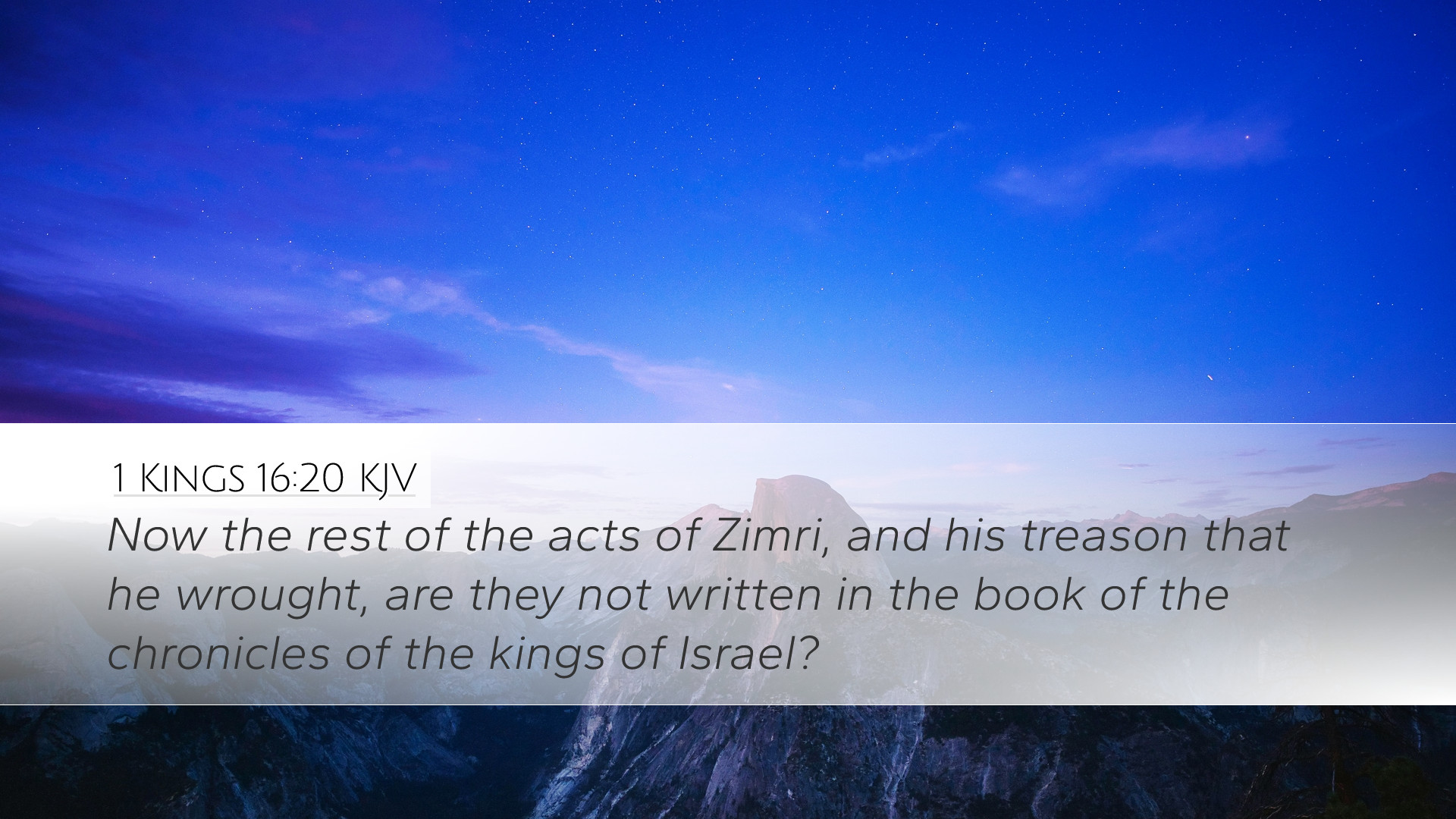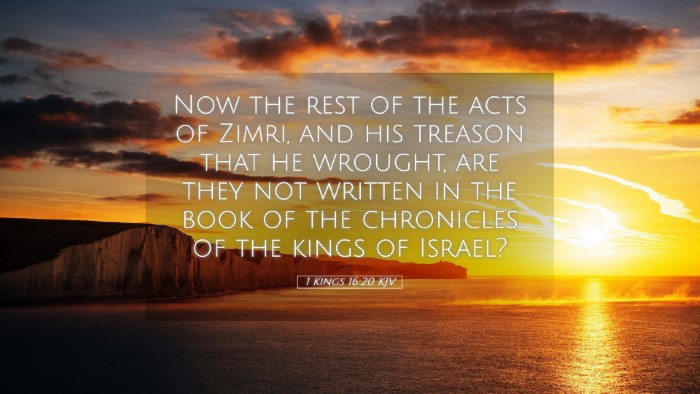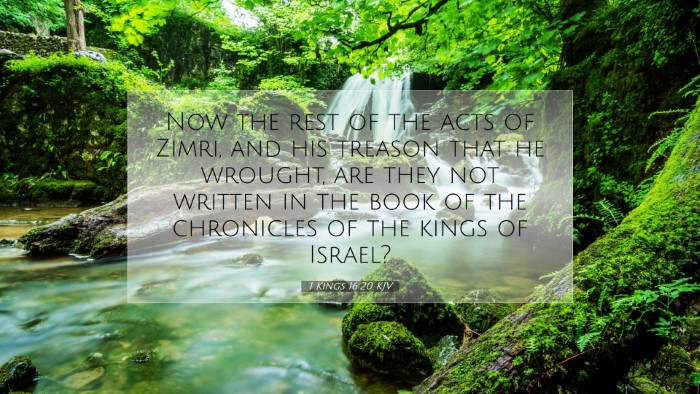Commentary on 1 Kings 16:20
1 Kings 16:20 states: "Now the rest of the acts of Zimri, and his treason that he wrought, are they not written in the book of the chronicles of the kings of Israel?" This verse presents a significant pause within the narrative, inviting reflection on the political dynamics of Israel during a tumultuous period.
General Context
At this point in 1 Kings, the kingdom of Israel is experiencing instability due to corruption and idolatry among its rulers. Zimri's brief reign, characterized by treachery and violence, serves as a warning example of the consequences of straying from God’s path. This commentary synthesizes insights from noted theologians to deepen understanding of this verse.
Matthew Henry's Insights
Matthew Henry notes that Zimri, in his seven-day rule after assassinating King Elah, exemplifies the futility of ambition devoid of righteousness. He was driven by personal gain rather than divine mandate, which ultimately led to his downfall. Henry emphasizes:
- Rebellion Against God: Zimri's actions were not only political but spiritual rebellion against Yahweh. This illustrates the covenant principles at stake.
- Impending Judgment: Zimri's quick rise and quicker fall serve as a testament to God's judgment against unrighteous leadership.
Albert Barnes' Reflection
Albert Barnes provides a detailed perspective on the mention of the "book of the chronicles of the kings of Israel," encouraging readers to reflect on the historical records that document both the triumphs and failures of leaders. Barnes elaborates:
- Historical Records: These chronicles are vital in understanding the overarching narrative of Israel's kingship and God’s unchanging standards of holiness.
- The Nature of Leadership: Barnes links Zimri’s treason to a larger theme of leadership failure throughout Israel's history, underscoring how such leadership undermines societal integrity.
Adam Clarke's Interpretation
Adam Clarke richly explores the personal dimensions of Zimri's treason. He connects this incident with a broader moral teaching on the nature of treachery and ambition:
- Treachery Defined: Clarke defines treason as not just betrayal of a political leader but betrayal of divine order, showing how spiritual fidelity is crucial for any ruler.
- The Role of the Prophet: He reflects on the prophetic voice during this time, noting how God used prophets to call leaders back to righteousness, a task Zimri neglected entirely.
Theological Implications
This verse conveys significant theological implications that resonate with contemporary readers. The focus on chronicles signifies the importance of recording history in light of God’s sovereignty. Several key themes emerge:
- Historical Accountability: The records serve as a reminder that all actions, particularly those of leaders, are subject to divine scrutiny.
- God's Sovereignty: The rapid succession of kings underscores God's control over history, even amidst human chaos and sin.
- Call to Righteous Leadership: Leaders today can learn from Zimri’s failure; leadership that does not honor God is destined for judgment.
Application for Modern Readers
For pastors and theologians, this verse invites reflection on the qualities necessary for effective leadership in both spiritual and secular realms. Some practical applications include:
- Integrity in Leadership: Emphasizing the importance of integrity and a heart aligned with God's will.
- Historical Awareness: Encouraging study of the past, both the successes and failures of leaders, to inform current practices.
- Spiritual Vigilance: Advocating for prayer and discernment in leadership roles, recognizing the weight of influence on communities.
Conclusion
1 Kings 16:20 serves as a somber reminder of the fleeting nature of power and the eternal principles of God’s justice. Through the lenses of prominent biblical commentators, we see the multifaceted implications of Zimri's reign and the continued relevance of these themes today. The pursuit of godly leadership remains an ever-pressing need within the fabric of society.


